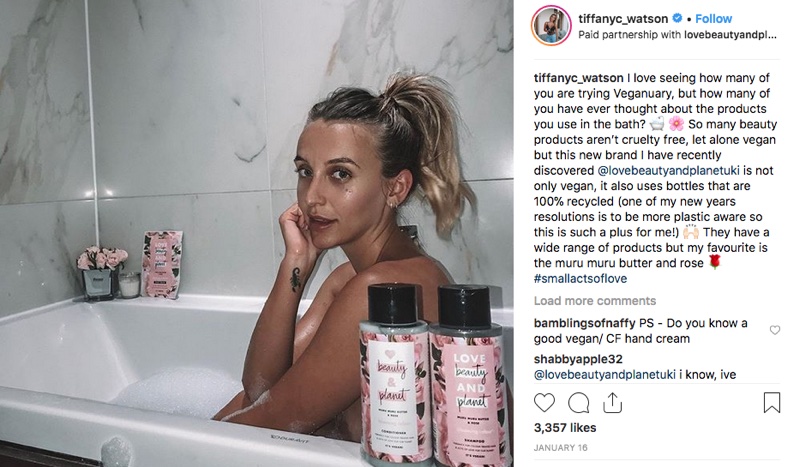The Competition and Markets Authority (CMA) has laid down the law with influencers endorsing products on their social media outlets.
This week 16 celebrities have made formal commitments to ensure they will clearly say if they have been paid or received gifts or loans from products they endorse.
This includes singers Ellie Goulding and Rita Ora; models Alexa Chung, Rosie Huntington-Whiteley and Michelle Keegan; and reality TV stars Millie Mackintosh and Megan McKenna.
Companies and brands are known to use influencers as part of their marketing strategy, who can promote their products or services to millions of followers.
However, the ambiguity of these posts has come under scrutiny after the personalities were not clearly stating if the posts were sponsored.
- Made in Chelsea star breaches advertising rules with Vanity Planet Instagram story
- Bloggers hold more influence over French GenZ buying decisions than magazines or advertising
- Exposure and free merchandise among 6 motivators influencers look for in brand partnership
As a result, the governing body opened an investigation in August last year to address these concerns.
This saw the CMA write to a number of celebrities to gather information about the posts and the nature of their agreements with brands.

Made in Chelsea star Louise Thompson was called out for misleading posts without using #ad // Image via @louise.thompson
Commenting on the investigation George Lusty, the CMA’s Senior Director for Consumer Protection, said: “If people see clothes, cosmetics, a car, or a holiday being plugged by someone they admire, they might be swayed into buying it.
“So, it’s really important they are clearly told whether a celebrity is promoting a product because they have bought it themselves, or because they have been paid or thanked in some way by the brand.”
What the rules say
The CMA has ruled a number of guidelines which celebrities must adhere to when posting online:
- Stating when you’ve been paid, given or loaned items
- Be clear about your relationship with the brand or business
- Don’t be misleading or give the impression you are just a consumer, or you have bought something that was gifted or loaned to you or that you have used the product or service, if you haven’t

An example of a paid sponsorship with reality TV star Tiffany Watson and Unilever // In,age via @tiffanyc_watson
In the report the CMA has also expressed what does not meet the criteria:
- Tagging a brand in the text, picture or video without additional disclosure
- Using discount codes in a post without additional disclosure
- Using ambiguous language without additional disclosure
- Unclear use of hostages, such as, #sp #collab #client #spon
- Adding #ad directly after the name of the brand
Talking about the new guidelines Andrea Coscelli, CEO of CMA, said : “You should be able to tell as soon as you look at a post if there is some form of payment or reward involved, so you can decide whether something is really worth spending your hard-earned money on.”




